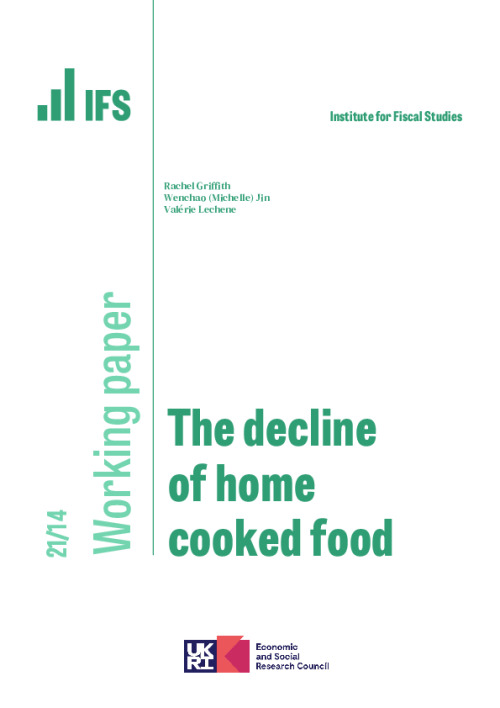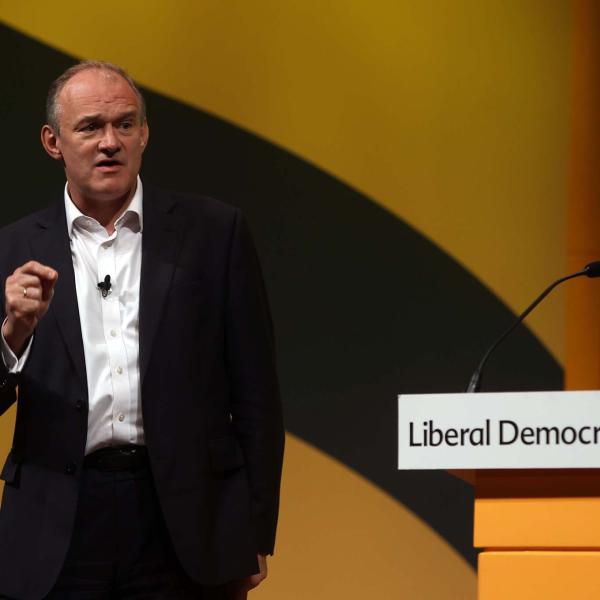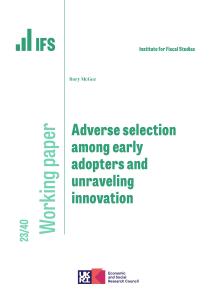Downloads

WP202114-The-decline-of-home-cooked-food.pdf
PDF | 684.47 KB
The share of home-cooked food in the diet of UK households declined from the 1980s. This was contemporaneous with a decline in the market price of ingredients for home cooking relative to ready-to-eat foods. We consider a simple model of food consumption and time use which captures the key driving forces behind these apparently conflicting trends. We show that observed behaviour can be rationalised by the fact that the shadow price of home-cooked food, which accounts for the fact that cooking takes time, has risen relative to the price of ready-to-eat food, due to the increase in the market value of time of secondary earners. We discuss the implications for policies that aim to encourage healthier diets.
Authors

CPP Co-Director, IFS Research Director
Rachel is Research Director and Professor at the University of Manchester. She was made a Dame for services to economic policy and education in 2021.

Research Fellow University College London
Valerie, a Research Fellow of the IFS, is a Reader at the University College London, whose research is focused on modelling intra-household behaviour.

Research Associate
Wenchao is an Assistant Professor at the University of Sussex and an IFS Research Associate.
Working Paper details
- DOI
- 10.1920/wp.ifs.2021.1421
- Publisher
- Institute for Fiscal Studies
Suggested citation
R, Griffith and W, Jin and V, Lechene. (2021). The decline of home cooked food. London: Institute for Fiscal Studies. Available at: https://ifs.org.uk/publications/decline-home-cooked-food (accessed: 30 June 2024).
More from IFS
Understand this issue

Liberal Democrat manifesto: a reaction
10 June 2024

Retirement is not always a choice that workers can afford to make
6 November 2023

Conservative Party Conference: Can the next government afford the NHS?
Policy analysis

Tax and public finances: the fundamentals
23 August 2023

Free breakfast clubs in schools: what Labour’s plans would mean for pupils and families
25 June 2024

How do the last five years measure up on levelling up?
19 June 2024
Academic research

Longer-term impacts of the COVID-19 pandemic on the dietary purchasing choices of British households
4 April 2024

Saving by buying ahead: stockpiling in response to lump-sum payments
2 February 2024

Adverse selection among early adopters and unraveling innovation
18 December 2023